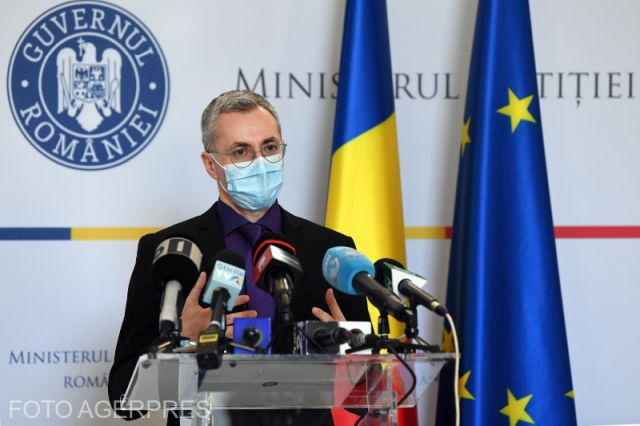Talks on dismantling the special section investigating magistrates
The Venice Commission agrees with the dismantling of the special section investigating criminal offences within the judiciary

Corina Cristea, 06.07.2021, 14:00
The dismantling of the special section investigating criminal offences within the judiciary is back in the public spotlight after the Venice Commission said this was a good thing and reaffirmed that super-immunity for magistrates should be eliminated and that the Higher Council of Magistrates should not be in a position to filter out criminal charges against judges and prosecutors.
The Justice Minister Stelian Ion explained the position of the Venice Commission, namely that the so-called guarantees for magistrates actually provide them with special immunity, which would merely “cast a shadow on the judicial process. According to the minister, there are no arguments to keep this special section in place, and a decision in this respect may be taken next week in the Senate.
Previously, the Chamber of Deputies had upheld the position of the Higher Council of Magistrates concerning the trying of judges and prosecutors for any criminal offences, including corruption.
Stelian Ion: “With this confirmation from an independent body of the Council of Europe, a body comprising mainly constitutional law experts, whom I would like to thank especially for answering our requests with such swiftness, and leaving aside this local turmoil, these disputes and clashes over the topic, so with all this in mind, I can see no further impediments.
The opinion of the Venice Commission confirms that my efforts as chair of the Legal Committee and the efforts of my fellow Liberal Senators towards scrapping super-immunity for magistrates, were justified, the Liberal Senator Iulia Scântei said in her turn. According to her, by dismantling the special section, a shameful chapter of recent history will be ended, a period when the independence of magistrates was under siege.
USR PLUS, the Liberals partners in the ruling coalition, believes the position of the Venice Commission comes as no surprise, given that the creation of this special division had been criticised by all European institutions. Investigating corruption must be brought back into the powers of the National Anti-Corruption Directorate, and the relevant amendments to the law must be scrapped, USR PLUS says.
Conversely, the Social Democrats in opposition remain adamant that no changes should be operated on the laws regulating the judiciary without a broad consensus of magistrates over the protection of judges from any type of pressure and abuse.
Several magistrate associations in Romania believe the head of the Higher Council of Magistrates should resign following the opinion communicated by the Venice Commission. Making the prosecution of magistrates for corruption conditional on the approval of the Higher Council of Magistrates is an unconstitutional filter and decreases public confidence in the judicial process, professional associations argue. (tr. A.M. Popescu)






























